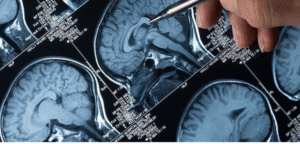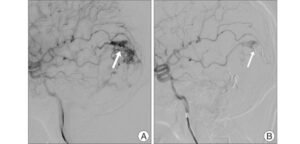Stroke – Early Warning Signs, Prevention & Treatment
A stroke is a medical emergency that occurs when blood flow to a part of the brain is interrupted, either by a blockage or a rupture of blood vessels. This disruption in blood supply deprives brain cells of oxygen and nutrients, leading to cell damage or death. Strokes can result in sudden loss of neurological functions and require immediate treatment to minimize brain damage and improve recovery outcomes.
What Are the Symptoms of Stroke?
The symptoms of a stroke can vary depending on the area of the brain affected but commonly include:
- Sudden Numbness or Weakness: This is especially noticeable on one side of the body, affecting the face, arm, or leg.
- Confusion or Trouble Speaking: Difficulty understanding or forming speech or sudden confusion.
- Vision Problems: Sudden trouble seeing in one or both eyes.
- Difficulty Walking: Sudden dizziness, loss of balance, or coordination problems.
- Severe Headache: A sudden, intense headache with no known cause. Early recognition and treatment are crucial for improving recovery chances and minimizing long-term effects.
How is Stroke Diagnosed?
Stroke diagnosis involves a combination of clinical evaluation and imaging studies:
- CT Scan: Provides quick images of the brain to identify bleeding or other abnormalities.
- MRI: Offers detailed images of brain tissue to detect areas affected by ischemia or haemorrhage.
- Carotid Ultrasound: Assesses blood flow in the carotid arteries to check for blockages.
- Blood Tests: Helps identify risk factors and underlying conditions contributing to the stroke. A comprehensive diagnosis includes evaluating the patient’s symptoms, medical history, and results from these diagnostic tools.
What Are the Treatment Options for Stroke?
Treatment for stroke varies based on the type and severity of the stroke, and may include:
- Medications: Such as thrombolytics to dissolve clots or anticoagulants to prevent further clotting.
- Thrombectomy: A procedure to physically remove clots from the brain’s blood vessels.
- Rehabilitation: This includes physical therapy, speech therapy, and occupational therapy to help patients regain lost functions and improve their quality of life.
- Lifestyle Changes: Addressing risk factors like hypertension, diabetes, and high cholesterol through diet, exercise, and medication. The choice of treatment depends on factors like the type of stroke, the timing of treatment, and the patient’s overall health.
Why Choose Us for Your Stroke Treatment?
Choosing us for stroke treatment means accessing expert care and advanced medical technologies. We offer personalized care plans to address each patient’s unique needs, from immediate intervention to comprehensive rehabilitation. Our commitment to excellence ensures that you receive the highest standard of care, focused on optimizing recovery and enhancing quality of life.
Trust us to provide compassionate support and effective treatment throughout your stroke recovery journey.
Related Blogs & Videos

From Diagnosis to Treatment: What Role Does Neuro-Oncology Play in Enhancing Patient Outcomes?
According to the World Health Organization (WHO), primary brain tumors account for approximately 2% of…
Read Article →
Is Tumor Embolization a Major Surgery?
Tumor embolization, designed to cut off blood supply to tumors delicately, stands out for its…
Read Article →